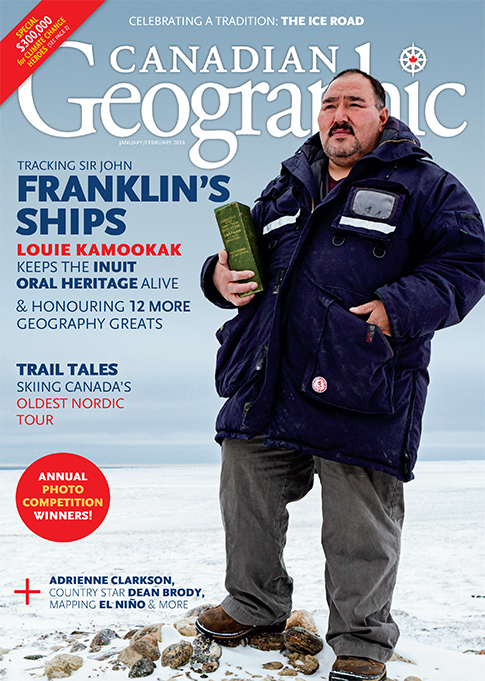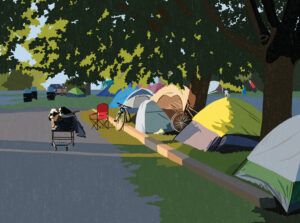
People & Culture
Kahkiihtwaam ee-pee-kiiweehtataahk: Bringing it back home again
The story of how a critically endangered Indigenous language can be saved
- 6310 words
- 26 minutes
This article is over 5 years old and may contain outdated information.
People & Culture

Kim Campbell has spent her career breaking down barriers for women. Among her long list of firsts, she served as Canada’s first woman justice minister and attorney general, prior to rising to the role of the country’s first and only woman prime minister. These days, she is regarded as an accomplished speaker and thinker on gender issues and has championed a number of organizations, such as the Council of Women World Leaders and the International Women’s Forum. Here, Campbell discusses her views on women’s issues in Canada.
On challenging stereotypes
As more women are seen doing different jobs, those stereotypes are broken down. It might seem odd to begin with, but then society gets used to it. I had no intention of making a career as being a former prime minister, but one of the reasons I stay in the spotlight is because I want to change those stereotypes of what a prime minister looks like. It’s this notion of trying to maintain my place in the firmament, not because I have to be important, but because I have to deliver the message to young Canadians, boys and girls, that women do this and a woman has done it and more women should do it. How do you change the landscape from what people determine is normal? You have to be there.
On women and their sexuality
Look at Justin Trudeau. A woman using her attractiveness in the same way is perceived very differently. A man can get away with being seen as attractive, without it undermining their gravitas. (Whether Mr. Trudeau has any gravitas or not will remain to be seen!) A man can be both. I remember there used to be a saying, “beauty and brains don’t come in the same package.” There was a time when if a woman wanted to be taken seriously, she had to be kind of mousy. I know all sorts of brilliant and beautiful women. Now many publications that care about the advancement of women make a point of doing articles about very successful and attractive women. They’ve always been there.
On discrimination as a woman prime minister
There was tons of it and I found it difficult to wrestle with. Intellectually, people may not think they’re bias. But I was not the prototypical leader and I made them uncomfortable, so they looked for ways to say, “she doesn’t belong here.”
During the 1993 election, the press kept referring to me as a rookie. Somehow I was a newcomer (though Pierre Trudeau was in only cabinet for a year and had never held elected office before). I’d held elected office at all three levels of government and of the 18 men who preceded me as prime minister of Canada, only eight had more cabinet experience. So in fact, I was among the most experienced.
On women being more assertive
Women often worry that if they’re not the experts, they shouldn’t talk. Men don’t worry about that. Men may not know their ass from a hole in the ground, but they’re happy to give their opinion. They have that positive allusion. Women have to be willing to speak. When I was prime minister, people in my office started calling me boss. I was uncomfortable with it. I told them they could call me chief or PM, but not boss. Little girls don’t want to be called boss, and I was a leader from the time I was a kid. Being bossy is a way people denigrate little girls who are assertive. A man is forceful; a woman is a bitch. Yet, you can’t accomplish things in life if you aren’t forceful. Women are constantly trying to put their strengths into a form that is socially acceptable.
Are you passionate about Canadian geography?
You can support Canadian Geographic in 3 ways:

This story is from the January/February 2016 Issue

People & Culture
The story of how a critically endangered Indigenous language can be saved

People & Culture
The director of the National Centre for Truth and Reconciliation reflects on Indigenous progress in 2017 and looks ahead to 2067

People & Culture
For unhoused residents and those who help them, the pandemic was another wave in a rising tide of challenges

Wildlife
How ‘maas ol, the spirit bear, connects us to the last glacial maximum of the Pacific Northwest